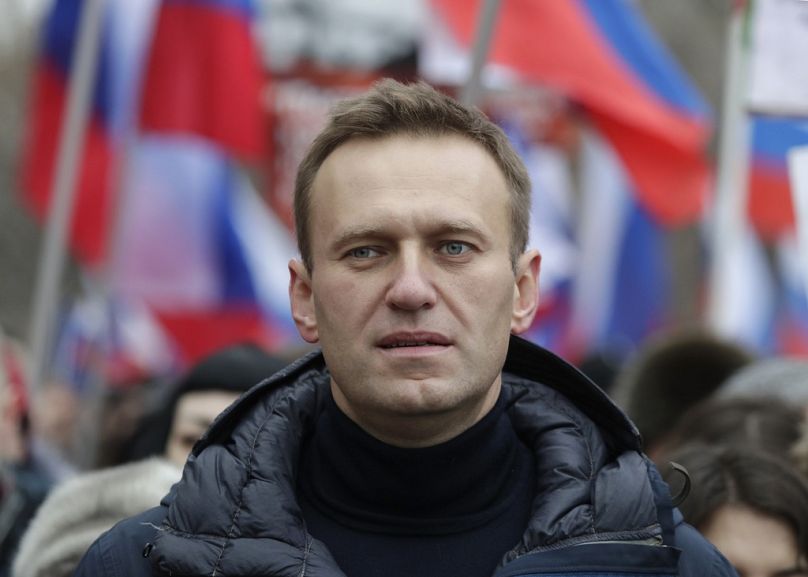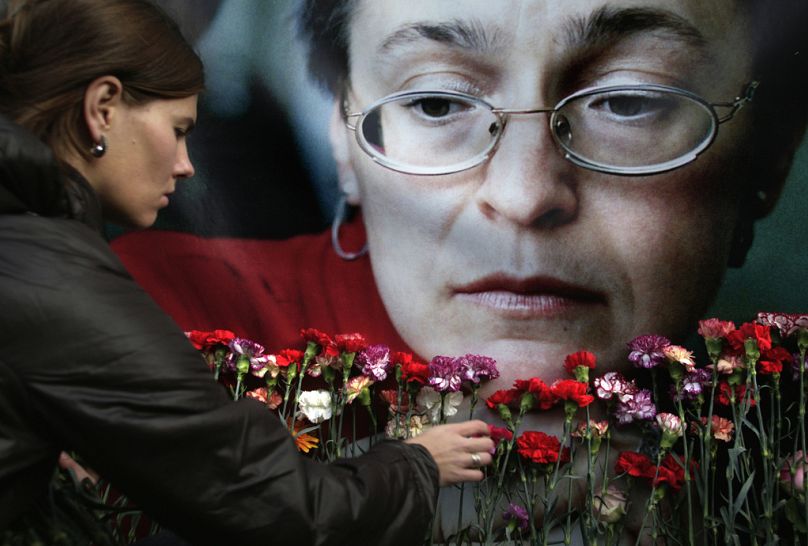Assassination attempts against Vladimir Putin's foes have been a consistent feature of his nearly quarter-century in power.
Over the years, many of Vladimir Putin's critics, former agents and inconvenient investigative journalists have been killed or assaulted in a variety of ways. The methods used range from the exotic to the mundane, from radioactive tea to shootings at point blank range.
There also have been reports of prominent Russian executives dying under mysterious circumstances, including falling from windows, although whether they were deliberate killings or suicides is sometimes difficult to determine.
And on Wednesday, a private plane carrying mercenary chief Yvgeny Prigozhin, who staged a brief rebellion in Russia this summer, plummeted into a field from tens of thousands of feet after breaking apart.
Those close to the victims and the few survivors have blamed Russian authorities, but the Kremlin has routinely denied involvement – as it did on Friday by saying it was "a complete lie" it had anything to do with the jet crash.
It was, in itself, a stunning event – but it's hardly the first time Putin's government has denied any role in the death of a problematic opponent.
The opposition
In August 2020, opposition leader Alexei Navalny fell ill on a flight from Siberia to Moscow. The plane landed in the city of Omsk, where Navalny was hospitalised in a coma. Two days later, he was airlifted to Berlin, where he recovered.
His allies almost immediately said he was poisoned, but Russian officials denied it. Labs in Germany, France and Sweden confirmed Navalny was poisoned by a Soviet-era nerve agent known as Novichok, which he reported had been applied to his underwear.
Navalny returned to Russia and was convicted this month of extremism and sentenced to 19 years in prison, his third conviction with a prison sentence in two years on charges he says are politically motivated.
In 2018, Pyotr Verzilov, a founder of the protest group Pussy Riot, fell severely ill and also was flown to Berlin, where doctors said poisoning was "highly plausible." He eventually recovered.
Prominent opposition figure Vladimir Kara-Murza survived what he believes were attempts to poison him in 2015 and 2017. He nearly died from kidney failure in the first instance and suspects poisoning, but no cause was determined. This year, he was convicted of treason and sentenced to 25 years in prison.
The highest-profile killing of a political opponent in recent years, though, was that of Boris Nemtsov. Once deputy prime minister under Boris Yeltsin, Nemtsov was a popular politician and harsh critic of Putin.
On a cold February night in 2015, he was gunned down by assailants on a bridge adjacent to the Kremlin as he walked with his girlfriend in a death that shocked the country.
Five men from the Russian region of Chechnya were convicted, with the gunman receiving up to 20 years, but Nemtsov's allies said their involvement was an attempt to shift blame from the government.
Ex-spies
One of the most infamous of all Putin-era assassinations came in 2006 with the death of defector Alexander Litvinenko, a former agent for the KGB and its post-Soviet successor agency, the FSB.
Litvinenko became violently ill in London after drinking tea laced with radioactive polonium-210, dying three weeks later.
He had been investigating the shooting death of Russian journalist Anna Politkovskaya as well as the Russian intelligence service's alleged links to organised crime. Before dying, Litvinenko told journalists the FSB was still producing poisons at a Soviet-era facility.
A British inquiry found that Russian agents had killed Litvinenko, probably with Putin's approval, but the Kremlin denied any involvement.
Another former Russian intelligence officer, Sergei Skripal, was poisoned in Britain in 2018. He and his adult daughter Yulia fell ill in the city of Salisbury and spent weeks in critical condition. They survived, but the attack later claimed the life of a British woman and left a man and a police officer seriously ill. Authorities said they both were poisoned with military grade Novichok.
Britain blamed Russian intelligence, but Moscow denied any role.
Journalists
Numerous journalists critical of authorities in Russia have been killed or suffered mysterious deaths, which their colleagues in some cases blamed on someone in the political hierarchy. In other cases, the reported reluctance by authorities to investigate raised suspicions.
Anna Politkovskaya, the Novaya Gazeta newspaper journalist whose death Litvinenko was investigating, was shot and killed in the elevator of her Moscow apartment building on October 7th 2006 – Putin's birthday.
She had won international acclaim for her reporting on human rights abuses in Chechnya. The gunman, a Chechen man himself, was convicted of the killing and sentenced to 20 years in prison, and four other Chechens were given shorter prison terms for their involvement.
Yuri Shchekochikhin, another Novaya Gazeta reporter, died of a sudden and violent illness in 2003. Shchekochikhin was investigating corrupt business deals and the possible role of Russian security services in the 1999 apartment house bombings blamed on Chechen insurgents. His colleagues insisted that he was poisoned and accused the authorities of deliberately hindering the investigation.
Wagner
Wednesday's plane crash that is presumed to have killed Yevgeny Prigozhin and top lieutenants of his Wagner private military company came two months to the day after he launched an armed rebellion that Putin labeled "a stab in the back" and "treason."
While not critical of Putin specifically, Prigozhin slammed the Russian military leadership and questioned the motives for going to war in Ukraine.
On Thursday, a preliminary US intelligence assessment found that the crash that killed all 10 people aboard was intentionally caused by an explosion, according to officials speaking on condition of anonymity. One said the explosion fell in line with Putin's "long history of trying to silence his critics."
Putin's spokesperson, Dmitry Peskov, rejected allegations the Kremlin was behind the crash.
"Of course, in the West those speculations are put out under a certain angle," he told reporters Friday, "and all of it is a complete lie."













